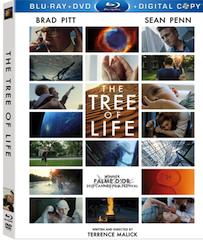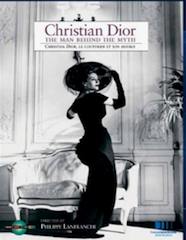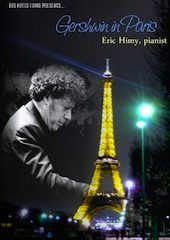Le Cochon de Gaza: When Pigs Have Wings
- SUBSCRIBE
- ALREADY SUBSCRIBED?
BECOME A BONJOUR PARIS MEMBER
Gain full access to our collection of over 5,000 articles and bring the City of Light into your life. Just 60 USD per year.
Find out why you should become a member here.
Sign in
Fill in your credentials below.
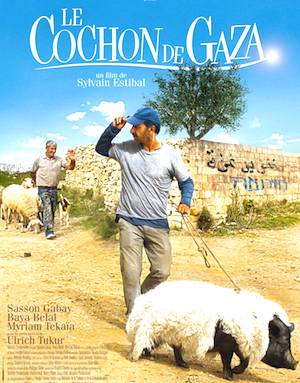 Le Cochon de Gaza: When Pigs Have Wings
Le Cochon de Gaza: When Pigs Have Wings
Le Cochon de Gaza (film will be released in the U.S. entitled When Pigs Have Wings) is set in Palestine–Israel and features Arab and Israeli actors playing local people in the occupied territories. The languages spoken are Arabic, Hebrew and English, yet it’s a European production with a French director. From one angle this is an example of global filmmaking and a multicultural perspective, which is a good thing. Yet we wonder if the Western participation dilutes the film’s vision. Most of the time, When Pigs Have Wings is an enthralling, funny, heartbreaking depiction of life on the frontlines of the Mideast. This is a credit to director Sylvain Estibal and his superb cast. Yet the film winds up as a feel-good movie, which doesn’t jibe with what happens during it.
The title brings to mind a child’s fable. And it starts off like a classic fable. Jafar (marvellously played by actor Sasson Gabay, The Band’s Visit, who’s actually an Iraqi-born Israeli) is a desperately poor fisherman. While others display huge fish on the pavement of the village’s dusty open-air market, Jafar offers a few measly little minnows. He tells his loving but acerbic wife Fatima about the big one that didn’t get away—but that he discreetly sold, and doesn’t have the money yet because he couldn’t make change. He’s the perennial sad sack of fable, but one magical day he goes fishing during a storm. He picks up the flotsam from another ship, and it turns out to be a large hog.
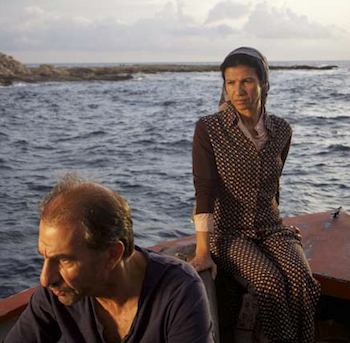
The irony is that hogs are proscribed by both Muslims and Jews, something the two enemies share in common. Jafar can’t butcher the animal or sell it on the market, or even reveal that he has it in his boat. His first instinct is to kill the pig and be rid of it. But he doesn’t quite have it in him to kill a living creature. Jafar is not only a sad sack but also like characters Yossarian in Catch-22 and Schweik in The Good Soldier, bumblers whose incompetence masks human decency. Gabay adds additional layers to Jafar’s character in a masterly performance.
Our anti-hero decides to try to make money out of his pig. One scheme seems to pay off. Yelena, a Russian Jew who lives in a settlement, offers money for the pig’s semen, for breeding purposes (the reason claimed is exporting the pork, but in fact a darker reason). Jafar’s efforts to coax semen from the pig, and then to substitute his own, takes us into the realm of ribald folk humor. It’s coarse but uproarious, and the gag builds into a literally explosive punch line illustrating the grotesquery of life in the occupied territories.
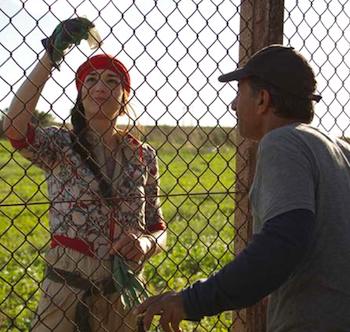 Despite the title, the film seems to conflate Gaza and the West Bank. The town Jafar and his wife live in is partially occupied by the Israelis—the top floor of their house is used as a lookout by Israeli soldiers (one of whom watches Brazilian telenovelas with Fatima). There’s also the Jewish settlement and a UN outpost. This evokes the West Bank, while the Palestinian enforcers on the other side of a checkpoint remind us of Hamas. In the end, the setting is a kind of symbolic “no man’s land.”
Despite the title, the film seems to conflate Gaza and the West Bank. The town Jafar and his wife live in is partially occupied by the Israelis—the top floor of their house is used as a lookout by Israeli soldiers (one of whom watches Brazilian telenovelas with Fatima). There’s also the Jewish settlement and a UN outpost. This evokes the West Bank, while the Palestinian enforcers on the other side of a checkpoint remind us of Hamas. In the end, the setting is a kind of symbolic “no man’s land.”
The film isn’t as efficient in political analysis as it is as a parable. The director stacks the dialectical deck: the settlement is already scheduled to be closed and the settlers evicted—by the Israeli army—so not much is at stake. Yelena is motivated only by economic factors, and desires to return to “my country” (i.e., Russia). The film might have subjected itself to more rigors by depicting a genuinely religious settler or one born in his settlement.
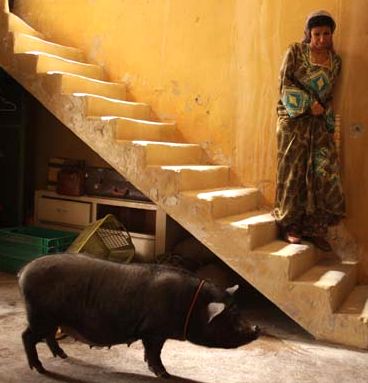 Most of the characters are caricatures, but vividly or affectionately played. The women in Jafar’s life, his wife and his Russian-Jewish platonic friend, are more complex. Baya Belal conveys not only Fatima’s temper, but also her bitterness at the Occupation and her joy when Jafar uses his newfound money to buy her clothes and jewelry. Myriam Takaïa is spirited and sensual as Yelena, and she makes the mutually exploitative (but at least non-murderous) working friendship with Jafar plausible. Politics eventually encroaches on the relationship, but it’s affecting while it lasts.
Most of the characters are caricatures, but vividly or affectionately played. The women in Jafar’s life, his wife and his Russian-Jewish platonic friend, are more complex. Baya Belal conveys not only Fatima’s temper, but also her bitterness at the Occupation and her joy when Jafar uses his newfound money to buy her clothes and jewelry. Myriam Takaïa is spirited and sensual as Yelena, and she makes the mutually exploitative (but at least non-murderous) working friendship with Jafar plausible. Politics eventually encroaches on the relationship, but it’s affecting while it lasts.
The director’s camera work is clean and the production values so first-rate we might think the movie too handsome for its own good. The technique does help draw us into the harsh setting and keep us there for the duration. When Pigs Have Wings takes its premise to its absurd conclusion—well, almost. The pig gets used as a booby trap, Jafar becomes an unsuccessful (but celebrated) suicide bomber, and Hamas and the Israelis unite to hunt down the pig. But the director finishes on a conventional note for the family audience (we all have some of that mushy demographic inside us). It feels like a cop-out—worse, it feels imposed, which is ironic for a film about the consequences of imperialism. Actually, the film’s most important achievement is a human one: showing us day-to-day life in a land subject to ancient hatreds and modern-day politics. In his resilience, resistance against all sides, and scheming determination to make a better life for himself, Jafar is one of the great comic characters.
View video trailer
Production: Marilyn Production, Studio Canal, Barry Films, Saga Film
Distribution: Studio Canal (France), uDream (Belgium)
Dimitri Keramitas is a Paris-based film reviwer who covers the latest French film releases for BonjourParis every other Wednesday. Click on his name to read his past reviews published in BonjourParis.
Do you have a story to share with our readers or a story suggestion? Please send us your story ideas & suggestions: contact us.
Subscribe for free so you don’t miss a story & don’t forget our searchable library of 7,000+ stories about France travel. 50 original stories monthly: travel guides, Paris events, dining, lodging, shopping, French lifestyle, recipes, photography & more since 1995.
 Save 15% on international business-class flights between Paris and New York on OpenSkies, the airline for Smart Flyers.
Save 15% on international business-class flights between Paris and New York on OpenSkies, the airline for Smart Flyers.
Subscribe today, save 15% for up to 4 travelers…click here.
Shop direct at Amazon.com (and merci for using our direct link—your support allows us to publish BonjourParis)
and check our Francophiles Favorites loaded with French-themed items for travelers and Francophiles. Choose your category at the right edge, then click the category’s last page number to browse the latest listings.
Short-cut to our 100 TOP SELLING ITEMS (please wait for widget to load—updated daily)
Click on movie images above for more info about these titles available at Amazon.com
3 Right Bank “Opera” district hotels in the Paris 9th:
Monterosa (3-star), Relais Madeleine (3-star) & Design Secret de Paris (4-star)
**** Eligible for the BEST PRICE GUARANTEE from Booking.com.
*** Bookmark this direct link to Booking.com for your Best Price Guarantee.
 Paris Shuttle is a leading provider of Paris airport transfers…save up to 30% by booking your airport transfers in advance online.
Paris Shuttle is a leading provider of Paris airport transfers…save up to 30% by booking your airport transfers in advance online.
More in film review, french cinema, French film, review


